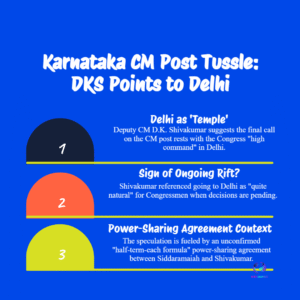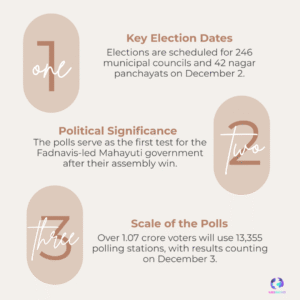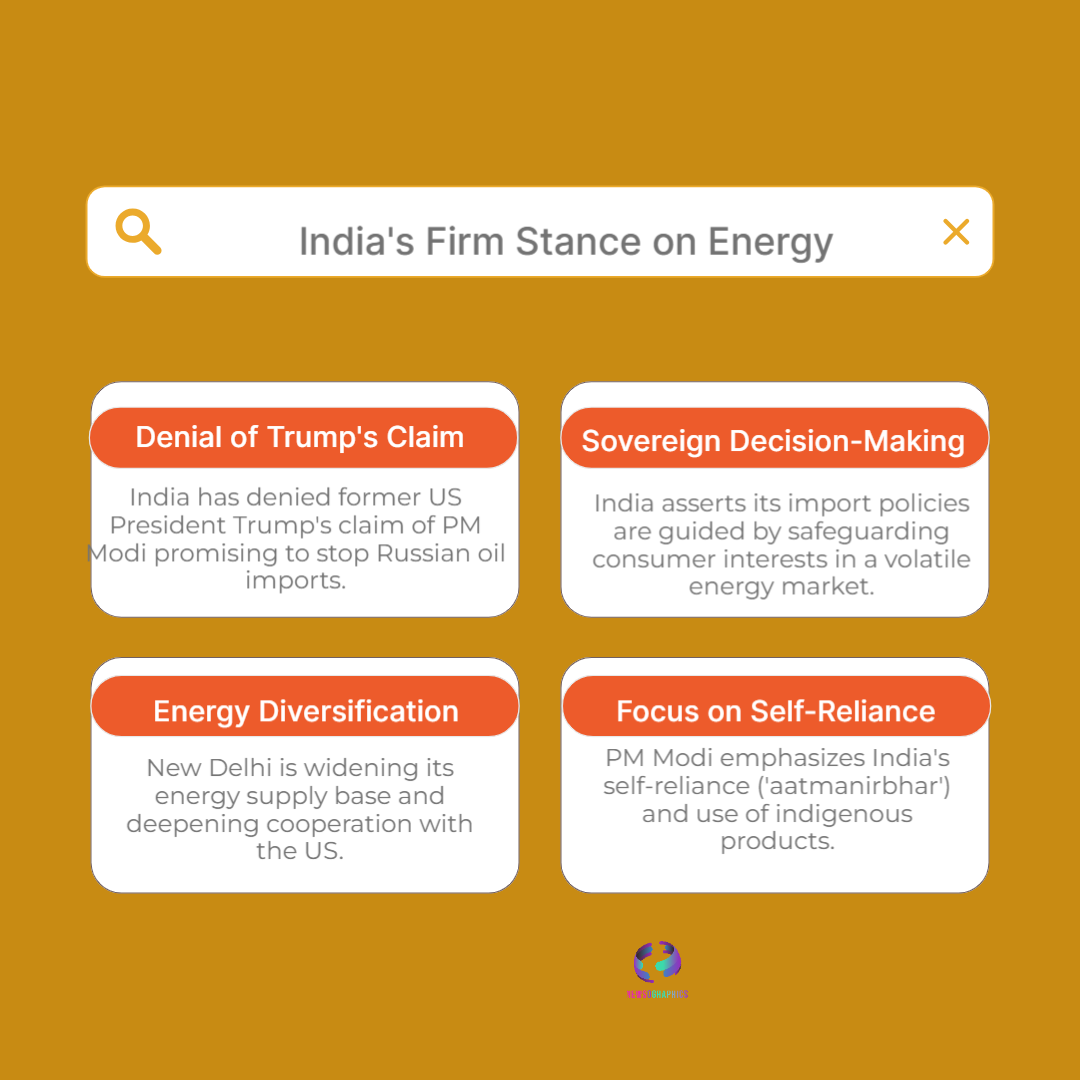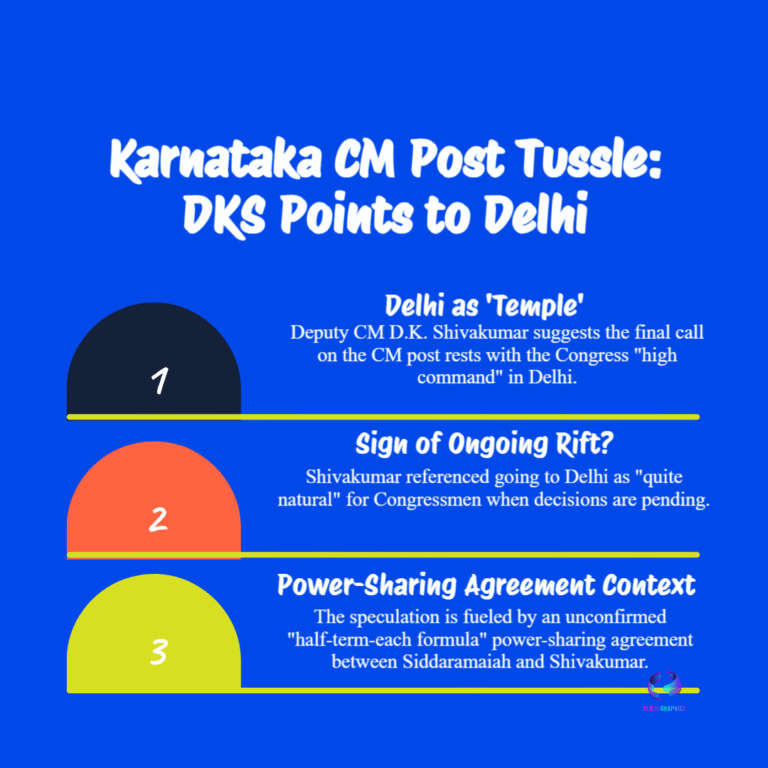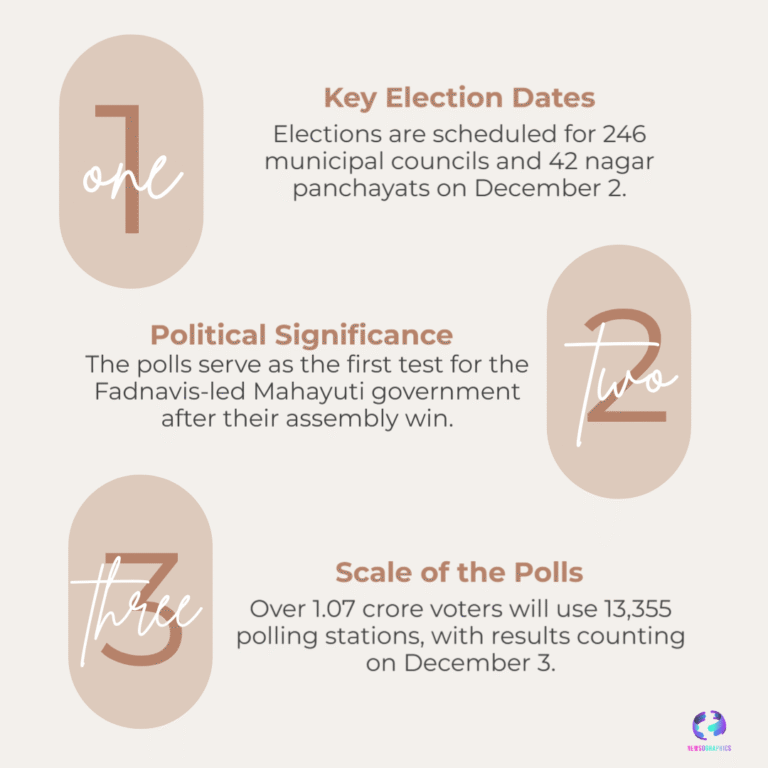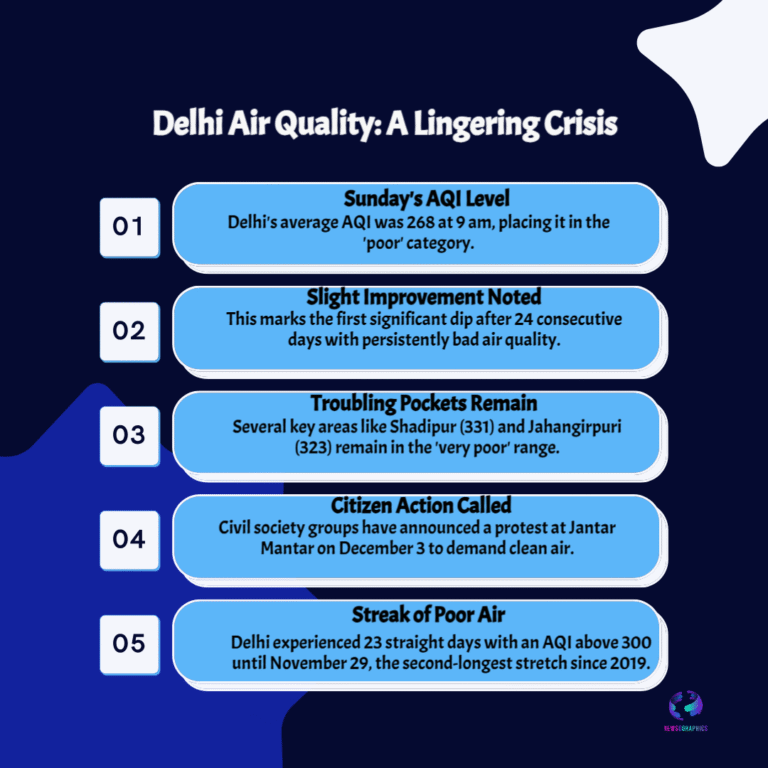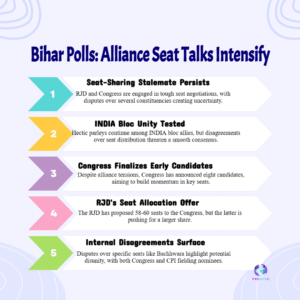After US President Donald Trump said he didn’t want to “destroy” PM Modi’s career and claimed Modi promised to stop buying Russian oil, India’s Ministry of External Affairs issued a firm denial and reiterated sovereign energy policy and ongoing trade talks.
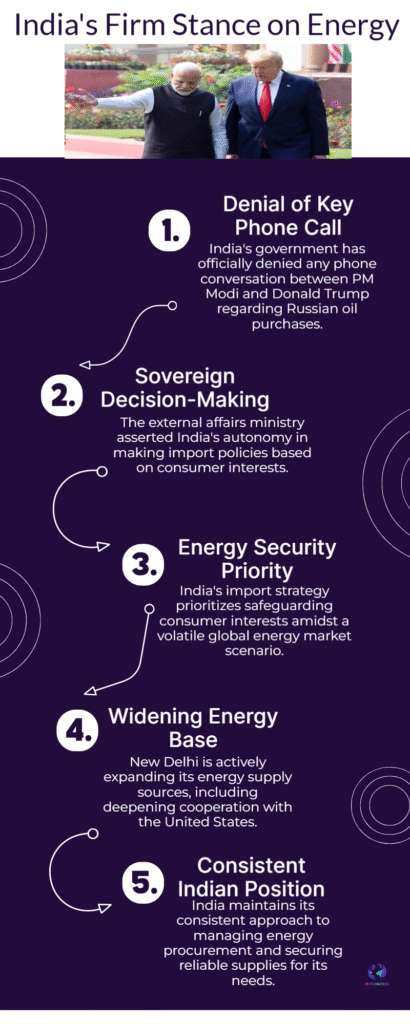
US President Donald Trump’s recent remarks — including that he “did not want to destroy” Prime Minister Narendra Modi’s political career and that Mr. Modi had promised to stop buying Russian oil — drew a swift and measured rebuttal from New Delhi. India’s Ministry of External Affairs clarified there was no such phone conversation and reiterated that India’s energy-import decisions are sovereign, guided by the need to protect consumers amid volatile global markets. The MEA emphasised India’s ongoing efforts to diversify its energy procurement and noted that discussions with the US on deeper energy and trade cooperation remain active.
Trump’s comments arrived against the backdrop of sensitive India-US trade negotiations and continuing debate over Russian crude purchases since 2022. New Delhi has long defended its energy strategy as pragmatic — balancing affordability, energy security and geopolitical realities — while also asserting red lines on agricultural and dairy market access in trade talks. Political reactions at home ranged from measured silence by the Prime Minister to pointed criticism from opposition figures, who questioned the government’s public posture.
Analysts say the episode highlights three immediate dynamics: the careful diplomatic choreography New Delhi follows when faced with unpredictable international rhetoric; the domestic political calculus around high-profile foreign interactions; and the potential for such statements to complicate sensitive trade negotiations. For readers tracking developments, key indicators to watch include official MEA clarifications, statements from India’s trade delegation in Washington, and any follow-up by the White House. Short-term fallout is likely limited to media attention and political debate, but persistent public claims can shape negotiation atmospherics. Observers urge calm diplomacy and continued focus on formal channels — trade rounds, energy cooperation talks and official communiqués — to prevent misunderstandings from derailing substantive policy dialogues.

